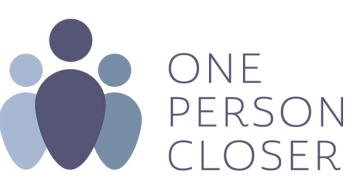
Endocrine therapy can reduce tumor size in patients with ER-positive breast cancer. It can even help some patients avoid chemotherapy or even surgery. Deciding how long to continue this therapy can be tricky though.

Endocrine therapy can reduce tumor size in patients with ER-positive breast cancer. It can even help some patients avoid chemotherapy or even surgery. Deciding how long to continue this therapy can be tricky though.

The National Comprehensive Cancer Network (NCCN) has added apalutamide (Erleada) to its category 1 recommendations for the treatment of patients with nonmetastatic castration-resistant prostate cancer.

The FDA has granted priority review to a supplemental biologics license application for Pembrolizumab (Keytruda) for the treatment of advanced cervical cancer with disease progression on or after chemotherapy.

The latest revision of the staging manual for breast cancer from the American Joint Committee on Cancer (AJCC) codifies advanced knowledge of the role of biologic factors in cancer.

The availability of PARP inhibitors for the treatment of patients with BRCA-mutant metastatic breast cancer has the potential to usher in a new era for targeted therapies.

Breast cancer survivors who exercise could reduce their risk of cardiovascular events, stroke, and diabetes, study shows.

Ribociclib (Kisqali) improves progression-free survival (PFS) in pre- or perimenopausal women with hormone receptor–positive, HER2-negative advanced or metastatic breast cancer. These results, shared at 2018 Miami Breast Cancer Conference, were sustained across patient subgroups.

Palbociclib (Ibrance), a CDK 4/6 inhibitor, demonstrated significant efficacy in combination with the aromatase inhibitor letrozole (Femara) in the frontline setting of estrogen receptor (ER)-positive, HER2-negative, postmenopausal metastatic breast cancer in phase III PALOMA-2 study.

Fear of cancer recurrence is considered one of the most prominent concerns for patients following a cancer diagnosis – a concern nurses can address when creating optimal survivorship care.

A drug used to treat leukemia may also have potential in treating small cell carcinoma of the ovary, hypercalcemic type (SCCOHT).

A wave of novel treatments and FDA approvals has recently swept through the HER2-positive breast cancer space. Kimberly L. Blackwell, MD, oncologist at Duke Cancer Institute, discusses these recent advancements.

The FDA has approved a supplemental biologics license application to add a 4-week dosing schedule for nivolumab (Opdivo) across several of the PD-1 inhibitor’s indications.

A non-profit organization has dedicated its efforts to raise awareness around the conversations healthcare teams should be having with patients about clinic trial enrollment.

Radiotherapy treatments for Hodgkin lymphoma may raise the risk of certain breast cancer subtypes, a study of data on women survivors from the Surveillance, Epidemiology, and End Results (SEER) registries revealed.

ASCO releases its annual report highlighting progress, trends, and future directions in cancer practice and research.

One out of three men with breast cancer does not receive adequate treatment, according to results of a global study which were published in Annals of Oncology.

Predicting survival outcomes for patients with metastatic triple-negative breast cancer (mTNBC) is now possible using liquid biopsy, according to results from a retrospective study published in the Journal of Clinical Oncology.

It is important for nurses to help patients implement physical interventions that are feasible and acceptable for those with colorectal cancer diagnoses.

As part of a multidisciplinary team, nurses often reference guidelines to assist in treatment decisions for patients with cancer. Now, they also have guidance on how to treat individuals that comprise an underserved population of patients: those living with HIV and cancer.

Hyperthermic intraperitoneal chemotherapy (HIPEC), also known as hot chemotherapy bath, has been shown to improve survival rates by 10%, according to study results recently published in the New England Journal of Medicine.

Genetic changes that occur during DNA cloning in people with microsatellite instability-high (MSI-H) colorectal cancer may affect the efficacy of targeted and immunologic therapies. Repeated testing may be necessary to ensure that targeted treatments keep up with the changes in DNA.

Based on data from the phase III MONARCH 3 trial, the FDA has approved abemaciclib (Verzenio) for use in combination with an aromatase inhibitor for the frontline treatment of postmenopausal women with hormone receptor (HR)-positive, HER2-negative advanced or metastatic breast cancer.

Survivors of childhood cancer could be up to 20 times more likely to develop ischemic heart disease or to have strokes than their siblings. To determine their level of risk, researchers used a prediction model that included factors like gender, type of chemotherapy, and radiotherapy exposure to the head, neck, or chest.

In a promising development in brain cancer research, injectable viruses have been found to be able to breach the blood-brain barrier and deliver immunotherapy to tumors.

Researchers developed the Head and Neck Survivorship Tool: Assessments and Recommendations (HN-STAR) to crunch patient-reported data and generate survivorship care plans to help those patients self-manage their care. Their study found that these plans could improve post-treatment care.

Lymph node surgery may be necessary to stop the spread of cancer, but it may cause people to have a limited range of motion. In addition to educating people about possible adverse effects, a new study suggests that nurses should also be explaining the benefits of physical therapy.

A study done at SUNY Downstate Hospital found that black women of Caribbean descent with type I or type II endometrial cancer expressed significant differences in genetic variations when compared with a nationwide population of patients with endometrial cancer.

Recognizing and understanding how to manage side effects related to immunotherapy treatements is key for nurses. To educate healthcare teams on immunotherapy-related toxicities, The National Comprehensive Cancer Network and the American Society of Clinical Oncology issued new guidelines.

Smoking prevention programs need to include warnings that the risk of “trying” a cigarette can lead to daily smoking, and that 69% of people in global survey data who have tried a cigarette became smokers.

Many adolescent and young adult (AYA) survivors of cancer end up "lost to follow-up," according to recent research. Nurses charged with patient education should take heed, and be sure to stress the importance of follow-up care to their AYA patients and their families.